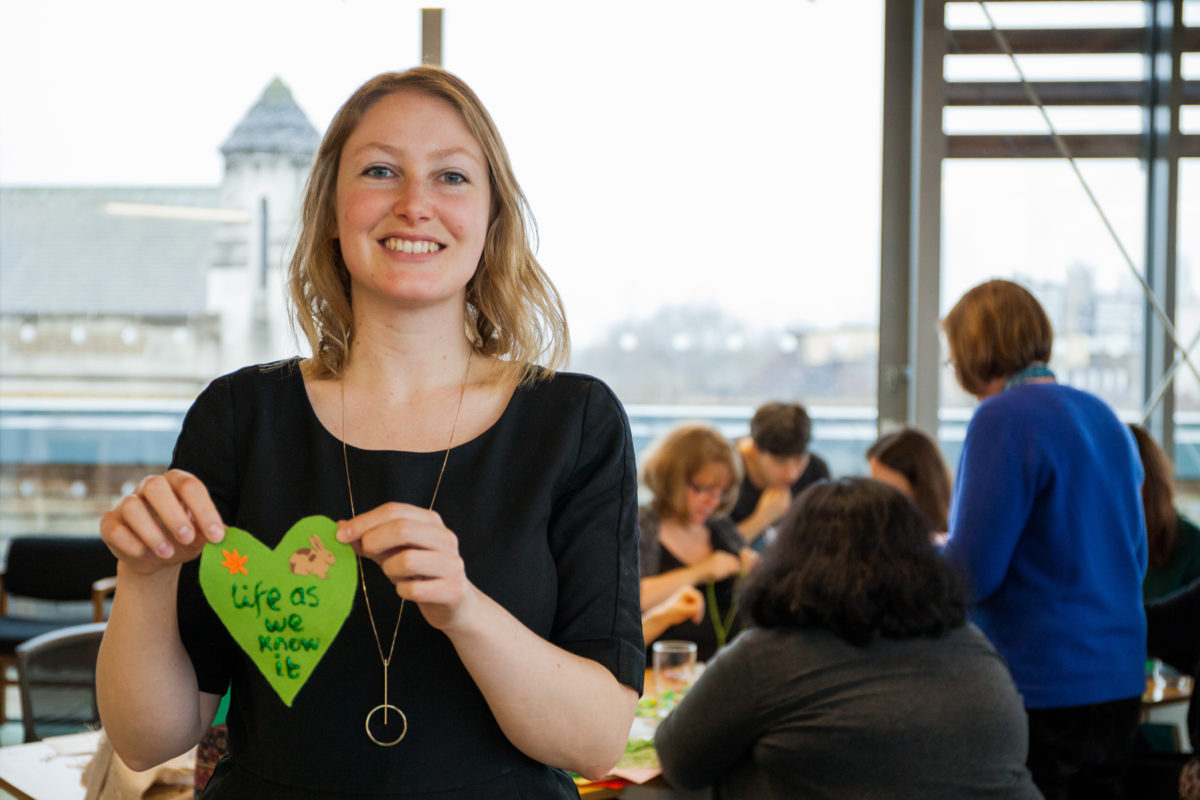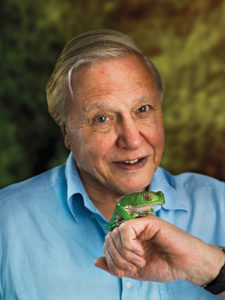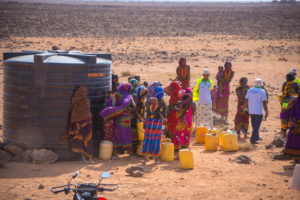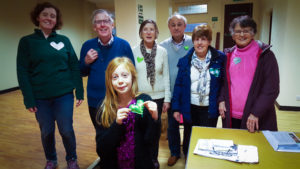Why is Valentine’s Day the perfect day to talk about climate change?

Our friends at The Climate Coalition discuss love and climate change for Valentine’s Day. CAFOD joins the Show the Love campaign every Valentine’s Day to start conversations about how the things we love are affected by climate change.
As we approach February the 14th, The Climate Coalition’s annual Show The Love weeks, now is the perfect time to ask ourselves: What does it mean to love?
Share green hearts on Valentine’s Day
What does it mean to love?
While in English, we have one word, in other languages there are many words to describe the subtle shades of this fundamental source of our humanity. The Greek philosophers identified 7 ‘types’ of love from philia, roughly equivalent to friendship, or brotherly love. To agape – the universal love that we feel for God’s creation and which we may express through charity or stewardship of the natural living world. This concept of agape is replicated in the Buddhist concept of mettā (Pali) and combines loving sentiment and goodwill with an active concern for those other than ourselves.
How does this relate to climate change?

Our history as a species is one of arriving at new frontiers. From the first times original human settlers set foot on new shores, to the splitting of the atom and the advance of human rights, we have overcome geographical, technological and cultural barriers. We have explored and inhabited virtually every corner of our globe. Yet as the global population hurtles towards 10 billion, the Earth’s natural resources are exploited at a rate faster than that from which they can recover each year. We are approaching boundaries that if crossed, will risk catastrophic and irreversible changes to the systems that sustain life.
As the insects and nutrients in our soil expire, our weather systems become more erratic each year. As poor farmers’ crops in Africa and South America wither due to failed rains, rich Westerners drive 4x4s to the shops and feast on ingredients transported for hundreds of miles. The average annual carbon dioxide footprint of a UK citizen is in the region of 6-8 tons. The average Tanzanian’s is 0.2.

The borders that divide us as nations go unnoticed by the global weather systems that regulate our climate. As the actions that we take and the products that we buy lead to consequences felt in distant places, the limits of our compassion are tested like never before. Now, more than ever, we must overcome barriers of self interest, of ego and of fear and engage in agape – in metta – in philia – in Love.
“I urgently appeal, then, for a new dialogue about how we are shaping the future of our planet. We need a conversation which includes everyone.” – Pope Francis
What does it mean to love a living world that is being destroyed?

You may like to reflect upon this question. You may like to talk to others about it, seek out those who are already working to protect the world we love and create a safer and stable climate. We must reach out to those around us – our families, our neighbours and manifest the Love which we feel in our hearts. We can hope, we can pray, but crucially, we must act.
This Valentine’s Day
So, this Valentine’s day, as we appreciate and celebrate those closest and most special to us, may we also think about those who we will never see or hear. Who also hold loved ones close, but will not celebrate the 14th of February with flowers, chocolate, cards or stuffed toys. Families, human and otherwise who’s very lives are endangered by climate change and the ecological crisis. When choosing how to show the love for your special someone, you may like to consider the following pieces of information and to ask others to do the same.
-
Imported winter flowers in the UK are commonly air-freighted from as far afield as Kenya
- Many chocolates and other household products are made using palm oil – one of the major drivers of deforestation in Indonesia
- Cold, wet springs combined with hot dry summers prevent food crops from growing well. The Government’s Climate Change Committee considers that ‘access to safe, nutritious and affordable food’ in the UK is at risk due to climate change.

‘My family were really curious about the crafted green hearts that I took home with me and it started some great conversations about climate change. My brother in law wants to protect the plants in his garden from climate change!’ ~ Becca, Climate Coalition
#ShowTheLove this February and help create a world where the UK no longer contributes to climate change.